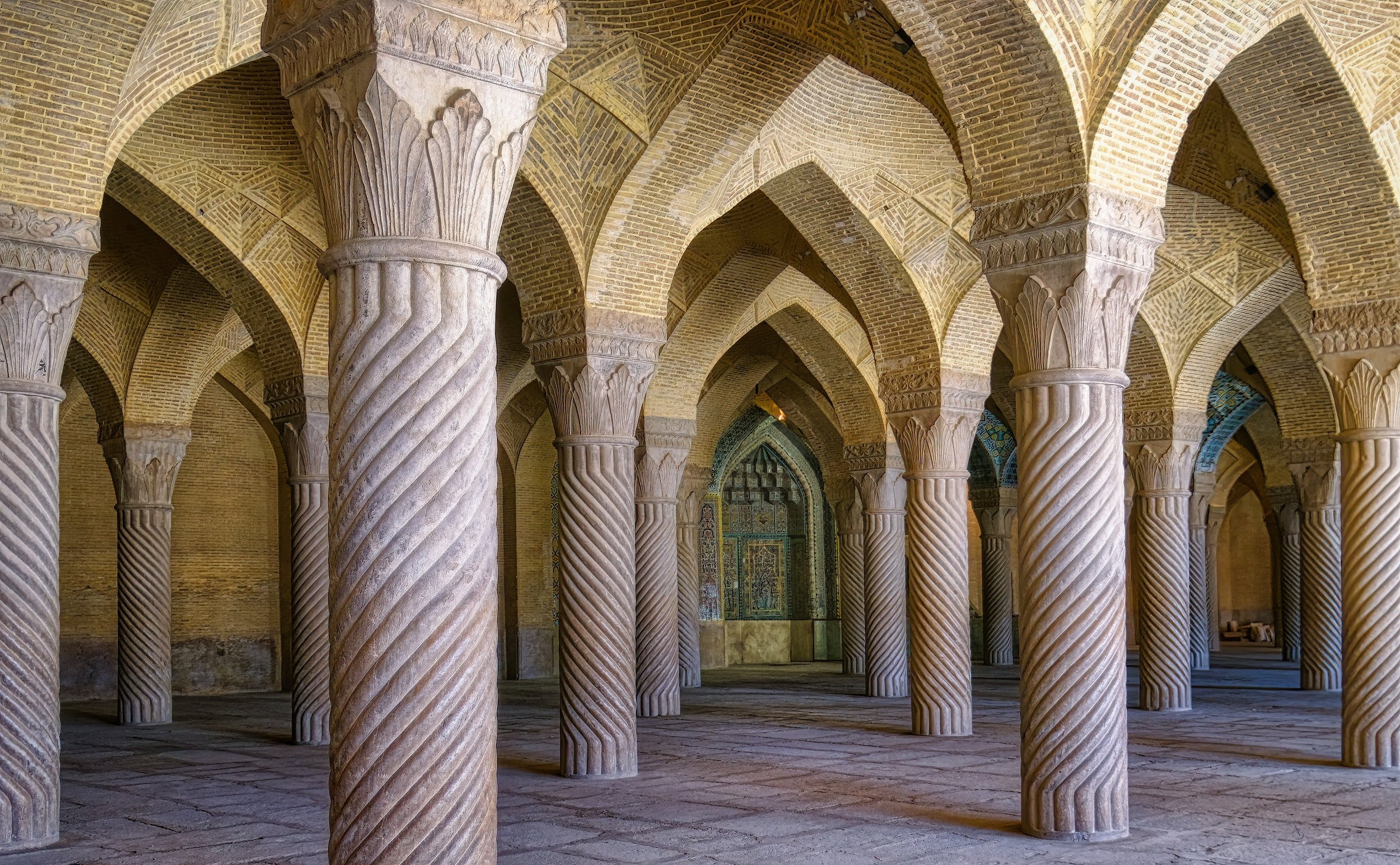
Islam has been built on five [pillars]: testifying that there is no deity worthy of worship except Allah and that Muhammad is the Messenger of Allah, establishing the salah (prayer), paying the zakat (obligatory charity), making the hajj (pilgrimage) to the House, and fasting in Ramadhan.
– Prophet Muhammad (ﷺ) [Bukhari]
The Five Pillars
1. Shahadah
The Shahadah, the essence of Islam, is the declaration of faith that there is one God and that Prophet Muhammad (peace be upon him) is God’s final messenger.
“Thus We have appointed you a middle nation, that ye may be witnesses against mankind, and that the messenger may be a witness against you” (Quran 2:143).
ٱلشَّهَادَةُ
Shahadah
Faith
2. Salah
Derived from the word, silah, meaning a connection, Salah is the obligatory Prayer, prayed five times a day, at set times according to the rotation of the earth and its relation to the sun’s rising and setting.
“Indeed the Salah is upon the believers at prescribed times” (Quran 4:103). These are Fajr (dawn prayer), Zuhr (noon prayer), Asr (mid-afternoon prayer), Maghrib (dusk prayer) and Isha (evening prayer).
Salah is a way of keeping God at the centre of a Muslim’s life, hence avoiding the possibility of being consumed by the demands and temptations of this world and of staying in tune with the rhythm of God’s creation, to reflect on and inculcate the signs of God.
صلاة
Salah
Prayer
3. Zakat
Literally a purification, Zakat is the yearly due, compulsory on all affluent Muslims, to be paid to the poor and the needy, and those who collect them, and those whose hearts are to be reconciled, and to free the captives and the debtors, and for the cause of God, and (for) the wayfarer (Quran 9:60).
2.5% of one’s savings is allocated to these classes of people as a due unto God. The Zakat purifies a Muslim’s wealth and purifies his heart from injustice, covetousness and greed.
زكاة
Zakat
Charity
4. Sawm
Literally, restraint. Sawm is fasting for the sake of God for an entire month (Ramadan) from dawn till dusk. Ramadan is the ninth month of the Islamic calendar, and fasting involves abstention from food, water and sexual relations. The Quran prescribes fasting so that you become aware of God (2:183), for hunger induces love of God as it symbolizes a movement away from egocentrism to theocentrism. The feeling of hunger allows the fasting person to identify with the poor and hence creates a readiness to give in charity (sadaqah), following the Prophet’s example, who was the most generous during Ramadan (Sahih al-Bukhari).
صوم
Sawm
Fasting
5. Hajj
The pilgrimage to Mecca, the purpose of which is to express devotion to God while commemorating His favours and blessings to His chosen viceroys on earth, in particular Abraham, Ishmael, Hagar and Muhammad (peace be upon them).
The various rituals have the double purpose of drawing one nearer to God in purifying the heart and focusing on His oneness, and of connecting one with sacred history. The light jog between the hills of Safa (Purity) and Marwa (Manliness), in imitation of Hagara’s search for water for her son Ishmael, ends after seven rounds at Safa, symbolising a purer heart. The concentric circumambulations (tawaf) around the Kabah in an anticlockwise fashion recall the ancient practice and the heart’s singular devotion to the One. The white unsown dress that all pilgrims wear creates a unity of men on earth, representing the oneness of God.
حَجّ
Hajj
Pilgrimage
